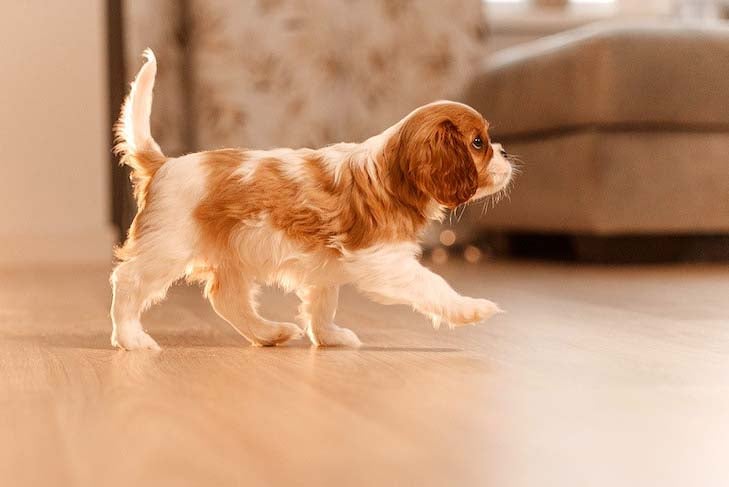
As a breeder, you know how important it is to match puppies with the best possible homes, whether they are destined to be show dogs, working dogs, sport dogs, or companions. And of course, you have to decide which one to keep for yourself!
You watch them carefully from birth and get to know each personality as it develops. Temperament testing can give you a better idea of what a particular puppy might excel at or which home will be the best fit.
Michele Godlevski, founder and owner of Teamworks Dog Training in Raleigh, NC, is a Certified Behavior Consultant who has earned many championship level titles in agility and titles in rally and obedience.
She has conducted temperament tests for breeders for many years and says the testing can give insight into puppies’ potentials.
“A temperament test is a snapshot of what potential a puppy has to offer,” Michele said. “In my many years of performing them, I find that there are significant personality differences sprinkled into every litter. While a litter of Flat-Coated Retrievers might seem to all have strong retrieving drive compared to a litter of Chinese Crested puppies for instance, you can definitely choose which puppy in each litter is the most and least motivated by food or treats.
“Other tests that are helpful are problem-solving tests, resource-guarding tests, and toy-drive tests. These evaluations give you an idea of which puppy might be the best candidate for the dog sports you might be interested in or which one might be the best fit for your current pack.”
Temperament test scores don’t necessarily reflect exactly how a puppy will grow up, but they can give a good indication. A puppy’s environment and socialization until adulthood have big impact. But temperament testing is a valuable tool that can be helpful in placing puppies in homes where they will thrive.
Michele said the ideal age to conduct temperament testing is 7 ½ weeks.
“Of course, puppies go through many developmental stages, including fear periods, which shape their behavior as adults. Both good and bad experiences during the puppies first year of life have a major influence on what the adult version of that dog will be,” she said.
When she tests, Michele said it is evident which breeders have conducted early puppy socialization with their litters and she stresses that it is important for breeders to do that early groundwork with their pups.
“After that, it is the new owner’s responsibility to continue positive socialization experiences for the puppy, to get the best possible puppy from what good genetics and early socialization produced.”
Breeder Stephanie Rudderow of Difesa Cane Corso utilizes a few different types of temperament tests with her puppies and uses their responses as part of her decision-making process when placing them. But she said that her overall observations of the puppies carry more weight than the results of the tests.
“I have found temperament testing to be helpful, but it’s only a part of the decision-making process,” Stephanie said. “I can’t say that temperament testing tells me which sport a puppy will be suitable for.
“We do not prepare puppies for temperament testing; we prepare them for life past the breeder. We expose our puppies to many sights, sounds, and textures, and we introduce them to people. I work with the puppies individually to gauge biddability and drive.”
Breeders should not conduct their own temperament tests, but find a trainer or behaviorist with testing experience. Part of the testing is observing how the puppies interact with a stranger.
There are a variety of programs that test puppies on various behaviors, including:
- The Volhard Puppy Aptitude Test (PAT) is commonly used. There are 10 items that test for social attraction, following, restraint, social dominance, elevation dominance, retrieving, touch sensitivity, sound sensitivity, sight sensitivity, and stability.
- Avidog offers a Puppy Evaluation Test course that tests for numerous behaviors.
- Dognition consists of science-based games that assess a dog’s problem-solving abilities.

